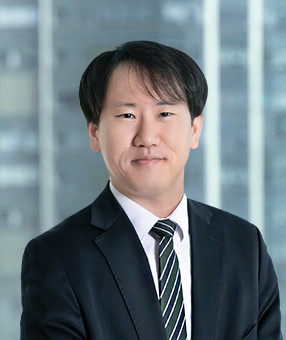The Korean Intellectual Property Office (KIPO) has promulgated some new Enforcement Rules from the Korean Patent Act ("KPA"), effective March 30, 2020. The new Enforcement Rules make some changes to Korean patent practice such as relaxation of formality requirements for Korean patent actions, patent markings, and third party challenges regarding pending patent applications. Some of the notable changes are discussed below:
Formality Requirements Relaxed For Korean Patent Applications - Making It Easier to Obtain Priority Date
Currently, it is possible to file a patent application in Korea with only the specification and without the claims (Article 42-2 KPA). The applicant will then have fourteen months from filing the original application to prepare the claims. However, in order to file without the claims, the specification needed to satisfy all other formality requirements, e.g., include title of invention, state of the art, brief description of drawings, detailed explanation of the embodiments, etc. Accordingly, although a patent application could be filed without claims (similar to US provisional applications), the requirements regarding the specification were still burdensome.
The amended Enforcement Rules of the Korean Patent Act ("Amended Rules") reduces the formality requirements for the specification. Under the Amended Rules, the specification may be substituted with any publication that merely identifies the applicant's invention. For example, an academic article or a research note may be sufficient. In addition, the current KPA allows the initial specification to be filed in English. This means that an English academic article or research paper do not need to be translated into Korean at the time of filing. Thus, a priority date can be obtained with significantly less costs.
However, an applicant who obtains a priority date without filing any claims or using a foreign language specification must file the claims and/or the Korean translation within fourteen months of the earliest priority date. Failure to do so will result in the patent application being considered to have been withdrawn.
Patent Marking Requirements
In Korea, patent marking is not required to receive damages. The patentee can seek damages from the patent grant date (compared to the US where damages are calculated from date of actual or constructive knowledge). As a practical matter, in Korea, patent marking is used mainly for marketing and advertising purposes, which may be utilized at the patentee's option (as opposed to a formal legal benefit).
Article 223 of the KPA provides some requirements or rules regarding how to mark a product with the patent number (e.g., by indicating "Patent" or "Method Patent" together with the patent number(s) or by indicating "Patent Application (under examination)" or "Method Patent Application (under examination)" together with the patent application number(s)). Also, Article 121 of the Enforcement Rules of the KPA allows virtual marking, i.e., marking of a product with a link to a website showing the list of applicable patents and patent applications.
Now, Article 121 of Amended Rules provides more specific guidelines. For example, Article 121 of the Amended Rules stipulates that "Patent" or "Method Patent" used in patent markings may be labeled in English (including English abbreviation) or Chinese. Moreover, a bar code or QR code may be used as a means for virtual marking. Further, Article 121 of the Amended Rule stipulates how to mark the expiration of the patent right and sets forth sanctions for false marking (patent marking/indications that may mislead consumers into thinking that an article is covered by a patent when there is no issued patent/pending application). Specifically, the Amended Rule stipulates that if the marking/indications are considered as false marking, the Korea Intellectual Property Protection Agency ("KIPPA") may recommend appropriate corrective measures such as deletion and modification of the false marking. Moreover, if there is failure to comply with the corrective measures, the KIPPA may file a criminal complaint in accordance with the Criminal Procedure Act. Violators may be subject to imprisonment up to three years or a fine of up to thirty million Korean Won (about USD 27,000).
Third Party Challenges to Pending Patent Applications
Under Article 63-2 of the KPA, a third party may submit information challenging pending applications while it is being examined at KIPO. The submission may consist of, for example, prior art references and/or a brief on technical and legal issues to assist the examiner's understanding. Although the general practice is that the patentee does not receive the challenger's submission, the challenger is still required to disclose their identity in the submission. As such, many challengers have been using a straw man when submitting challenges to keep their identities confidential.
The Amended Rules eliminates the requirement for challengers to disclose their identities. Thus, challengers no longer need to use a straw man when challenging patent applications.
Related Topics







